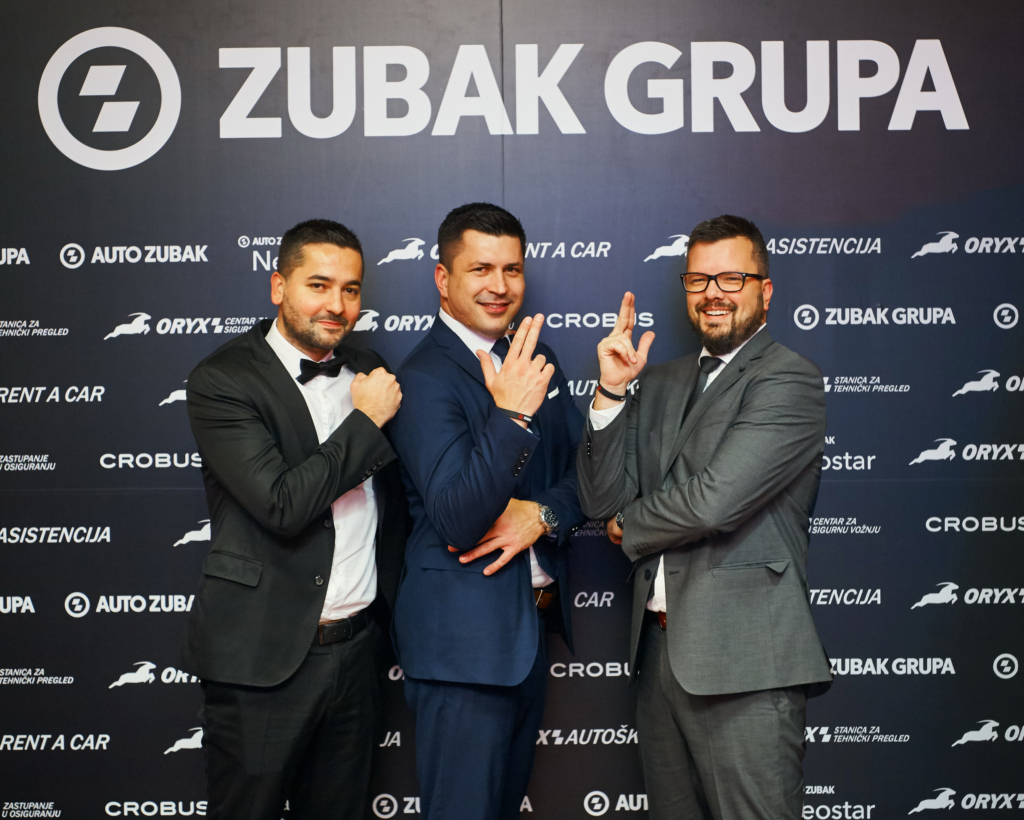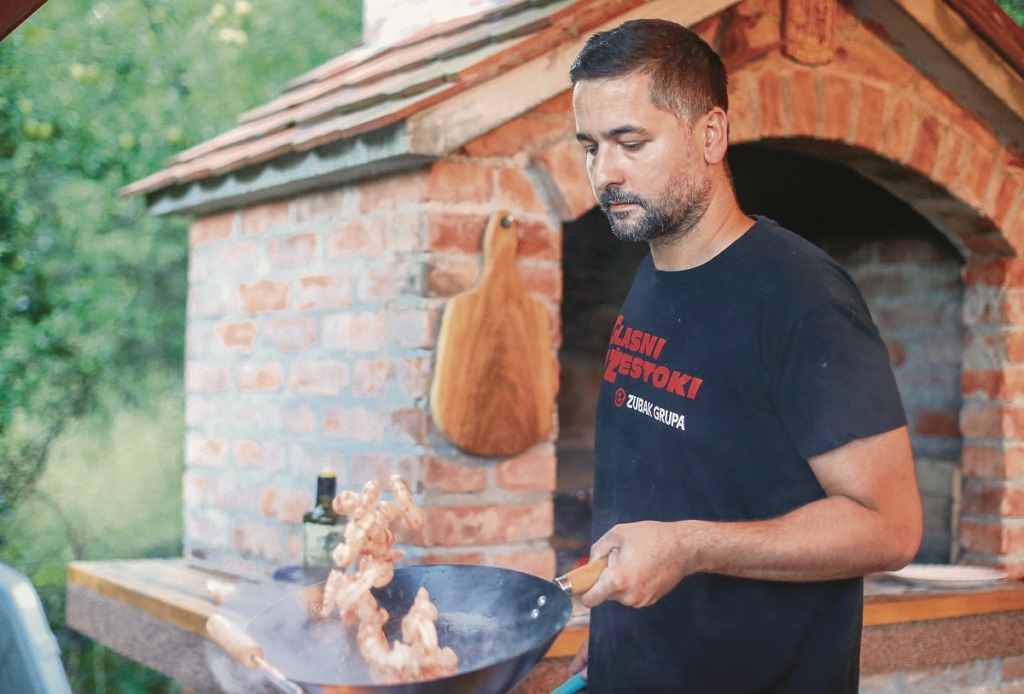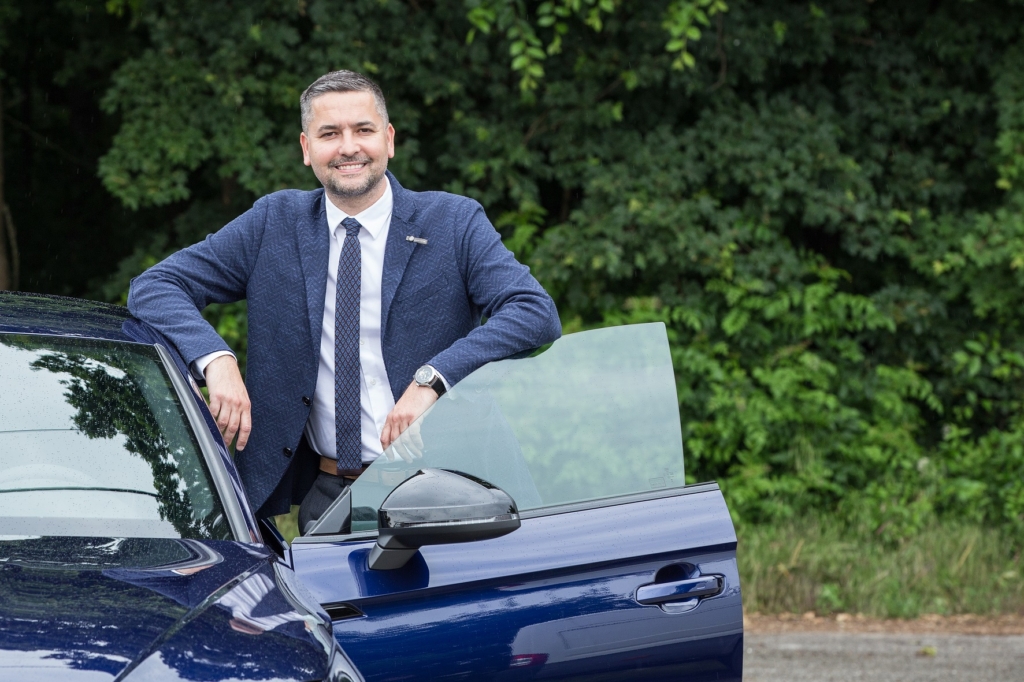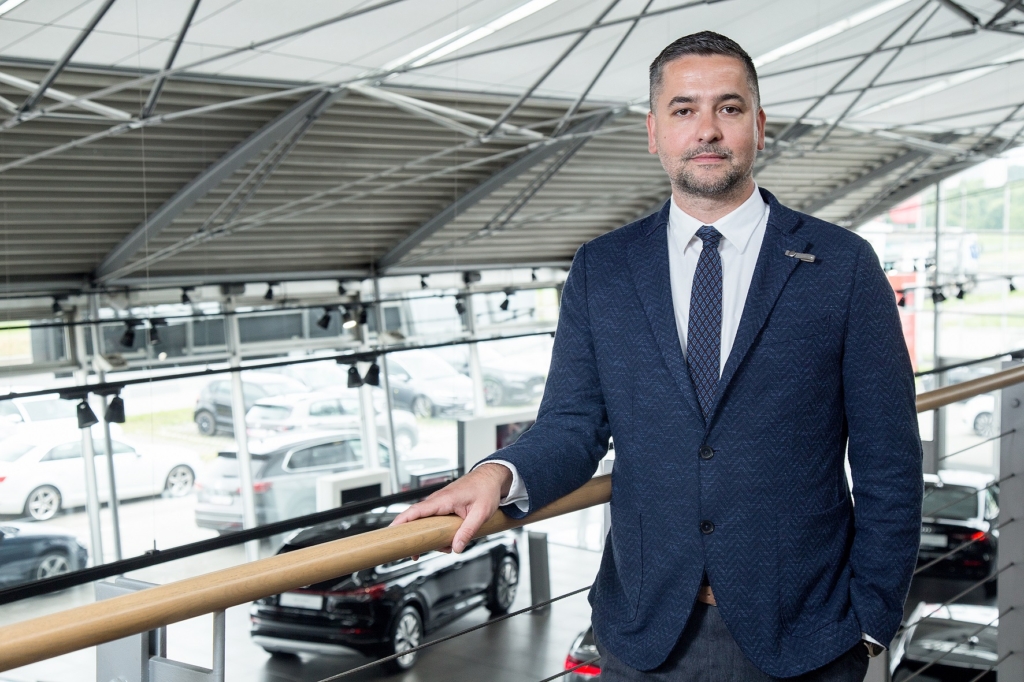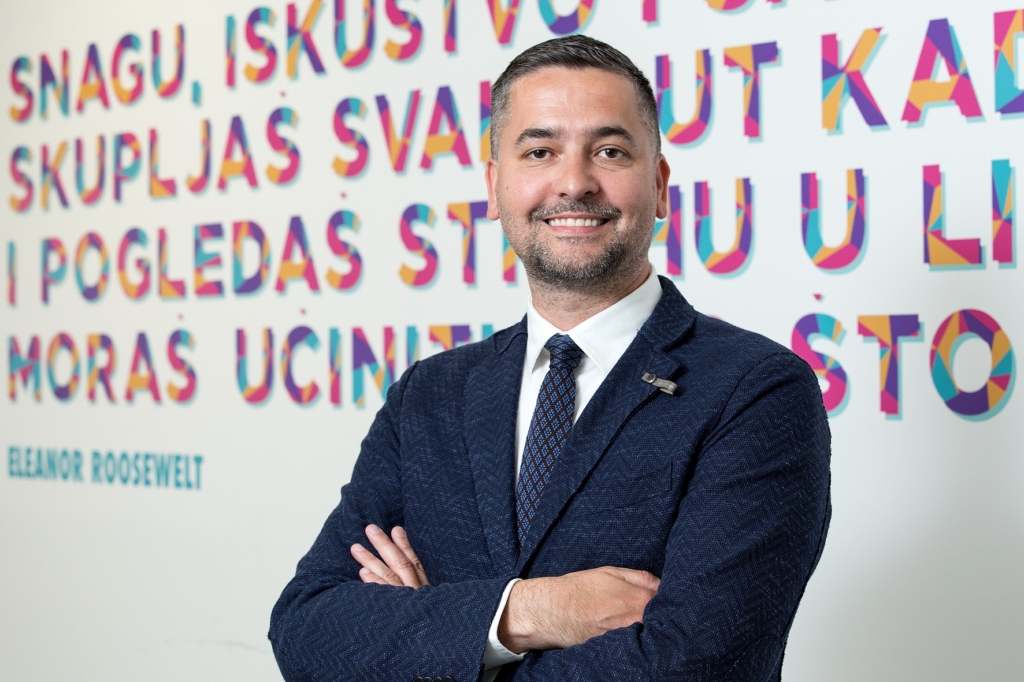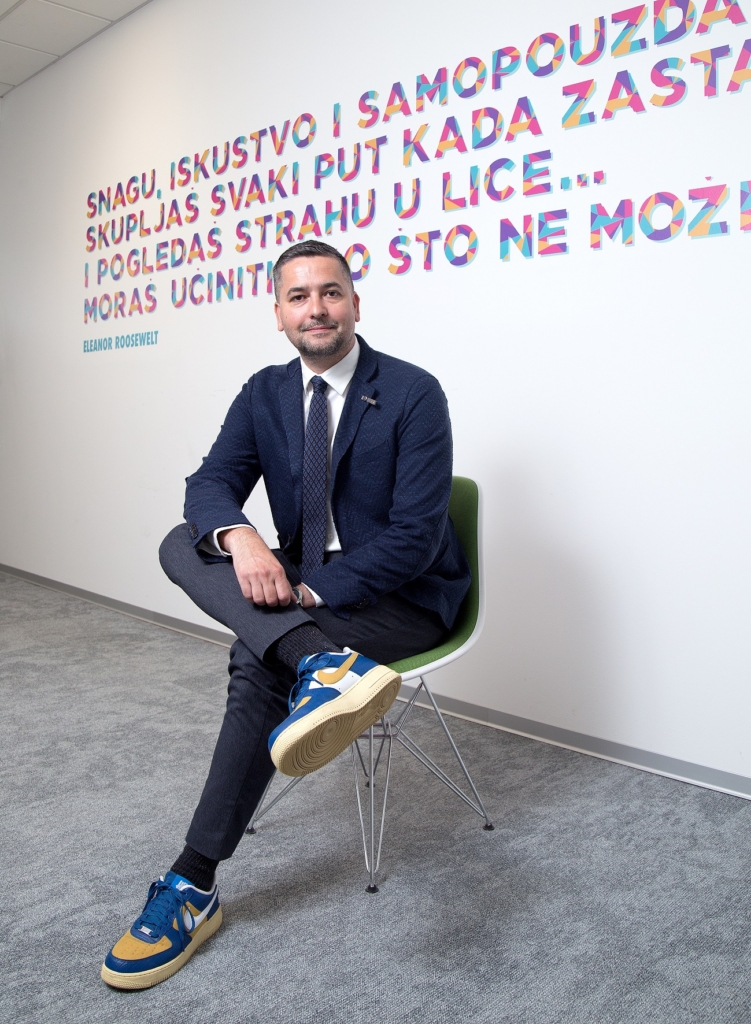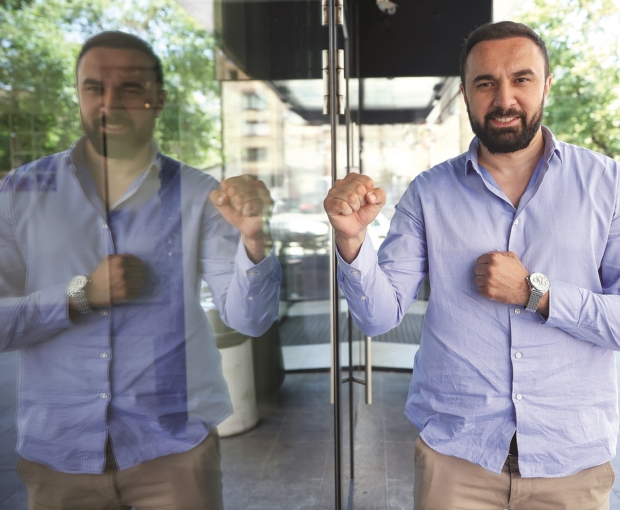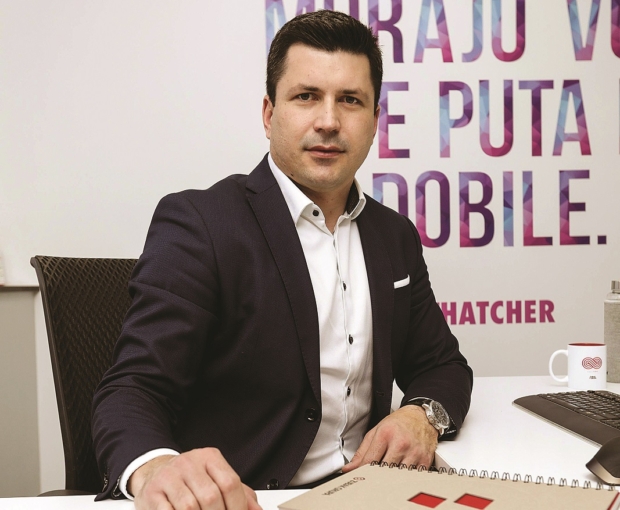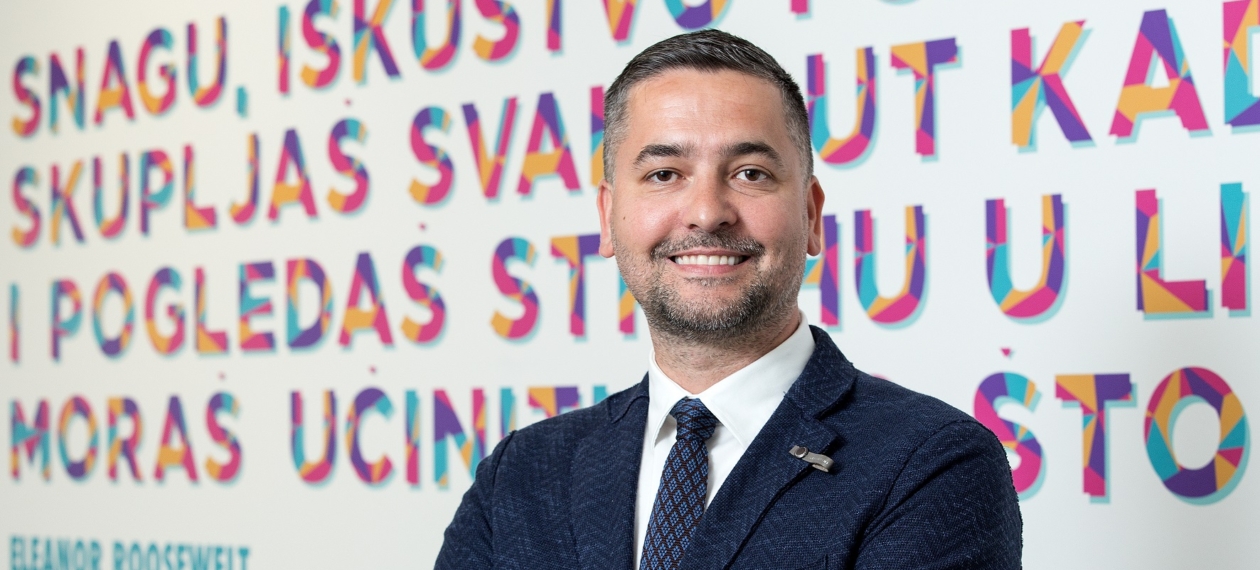
Our colleague Mate Šola has been working at Zubak Grupa for more than 5 years now, but not everyone knows he used to work in a completely different field – the culinary one. Top-notch fish, fresh shrimps, quality tuna and prawns… All these delicacies made it onto the Summer menu, followed by the grill at Mate’s place. Apart from being our After Sales Director, not a lot of us knew that Šola was a culinary wiz and a schooled chef, as well. Hence why we caught him one Summer night to tell us all about his love for cooking which, luckily for us, he put aside.
Mate, big thanks for letting us jog your memory about your culinary days for our AFTER WORK feature! Give us the lowdown on your beginnings.
I got my first cooking steps in acclaimed Zagreb hotels such as Palace, Esplanade, also Stari Podrum restaurant. After completing my military service, I got seriously intrigued by international cuisine, particularly Mexican. I fell head over heels for Mexican grub while I was working at Caramba, once the best Mexican restaurant in Zagreb. That’s where I caught the eye of a restaurant owner from Poreč, so I spent over a year as the kitchen chef at his new restaurant in the Adriatic coast.
You know Zubak Grupa has two hotels on the Adriatic coast, Ikador and Veladrion Resort. What was it like working in a seaside restaurant and can you do a comparison?
I was lucky enough to be able to visit both Veladrion and Ikador, and let me tell you, that’s a level of luxury terribly missing on the Adriatic coast, we need more restaurants like that. Kudos to the Veladrion and Ikador crew for their dedication and top-notch service.
Working in a seaside restaurant was a good experience for me, I learned a lot, but on the flip side, it was seriously intense since I practically lived in the kitchen from 6 in the morning until 1 at night, every day. That pace was too much for me, and I eventually decided I’d stick to cooking for family and friends from then on, ’cause that’s what I enjoyed and still do.
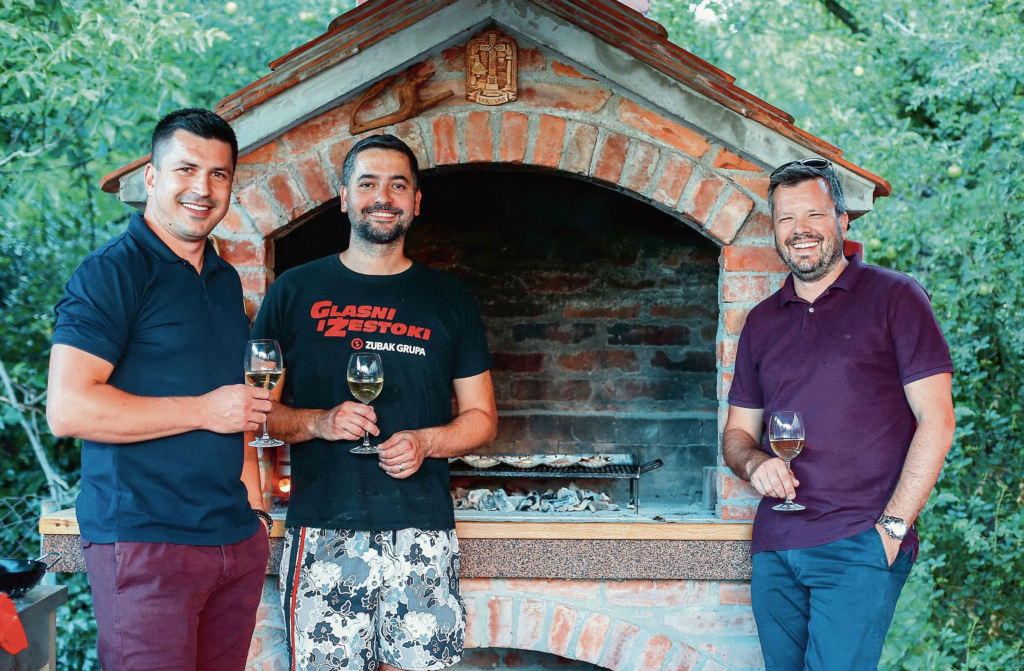
So how did you end up in ORYX Assistance?
After my culinary career, I made a 180 into a whole different field – insurance. I worked at Euroherc for a few years, until the folks at Zubak Grupa recruited me to join their fresh new sales department with plans to expand to foreign territories. I didn’t hesitate and don’t regret it to this day!
Mate, you’ve been with Zubak Grupa since the end of 2017. You honed your skills in ORYX Assistance’s sales department, and in 2022, you got promoted to After Sales Director at ORYX Assistance. How did your sales experience prep you for the new job in after sales?
I reckon sales experience is a solid foundation for any business segment, since in sales, you’re honing your people communication skills, identifying their needs, and ultimately, convincing them your product is what they need. The sales team promises all sorts of stuff to partners, and bam, after sales team steps in to make good on those promises, haha. It’s no easy task, but we’re holding up well and aiming to exceed expectations. Either way, since I’ve been on both sides of the coin, I can understand the needs of both sales and after sales. That’s a huge advantage.
What departments do you oversee, and what are the most common advantages and challenges you face? How many external partners do you have, and in how many countries? What kind of numbers are we talking about?
ORYX Assistance after sales sector consists of two departments: Contact Center and the Service Network. The Contact Center is the biggest department of ORYX Assistance, with offices in Zagreb, Pula, Ljubljana, and Skopje, taking care of over 1.2 million memberships across eight countries, and working 24/7.
The Service Network Department takes care of our service partners, who are the first line of help for clients – all within 45 minutes of a call, anywhere in Europe. It’s a priceless feeling when a contact center agent and a partner in the field know they’re the ones who lent a hand! As for challenges, I think every call from a client in need can be a challenge, given our job is about urgent help in time specific situations. Imagine, for instance, a mom with a little child, stranded on a hot highway in the summer season. Those stressful situations could turn dangerous, which is why our contact center agent’s approach is crucial, not just in terms of organizing aid, but also psychologically.
Clients need to be certain that help is on the way and you’ve got everything under control. They need to know they’re not alone so they don’t jeopardize their safety or others on the road. From our experience, clients appreciate advice and a chat, so the biggest reward after a successful intervention is their gratitude and loyalty. Once we help someone, they stick with us and recommend us to everyone. That’s our best advertising. This job is noble, and that’s why the folks in the Contact Center and out in the field need to be noble and empathetic people themselves to handle it.
It’s known that post sales is a crucial aspect of any company, and its success depends on long-term customer loyalty. How are your departments working to enhance the user experience?
Customer experience a means a lot to us. With over 1.2 million memberships we still haven’t had to form a Complaints department, which basically means we keep our complaint count as low as it can be. Of course, during our regular team meetings, we dissect everything and work hard, tweaking processes so we don’t repeat the same missteps down the road. Education wise, we set up all sorts of activities to school our team, from in-house workshops to outside classes. We want every team member to tap into their full potential, enjoy what they do, and that vibe ultimately trickles down to our clients’ experience. Plus, we’re eagle-eyed on the latest trends and tech. With the recent rise of artificial intelligence, new doors have opened, leading to solutions that enhance user experience. There are already tools in play that automatically sort through user requests and cut down wait times, pushing up our game in taking care of clients to a whole new level.

Give us the scoop on how ORYX Assistance’s digitalization is going to lend a hand and supercharge things.
We’ve been going full steam ahead on the digitalization project at ORYX Assistance for over 2 years now. Using cutting edge algorithms, we’re looking to optimize the repetitive workload and amp up the quality of service by giving work to the best partner, not just the closest. For example, if two service partners are equally close to the client in need, the one with the better track record, quicker response time, proper gear, and a bunch of other criteria, will be the go-to for the intervention. Additionally, clients will be able to track assistance ETA in real time, something that will surely enhance the user experience and efficacy of partners. In the second phase, we’re also preparing a brand new digital business model, two projects which we’re super excited about.
You keep a tight team. Surely, there are times where you guys triumphed over some difficulties as a team. Care to dish out a challenging example and what lessons were cooked up?
My mind flashes back to when that unfortunate Covid took center stage in our lives. It was the dawn of the epidemic, that first lockdown. A handful of us in the team were wrapping up a massive project, facing tight deadlines. Suddenly, Covid struck, we’re all stuck working from home, when just days prior we’d been having totally different set of worries. Long story short, we pulled off the project with flying colors, all that was left was to print out the documentation. Since I didn’t have a printer at home, I hightailed it from Maksimir to Sesvete, all the way to the office, get the stuff in print. But there I am in Sesvete, and the police stops me, asking for a Covid pass. Unfortunately, I didn’t have any, and after a lengthy back-and-forth where I was assuring them I’m not dangerous to public health, they finally let me go. Recalling this in 2023, I must sound crazy surreal.
How do you deal with failure? Is there something in your line of work you wanted to implement but didn’t quite manage to?
It’s human nature to not like failure, and that goes for me too. But, I definitely don’t treat it like the world’s ending – it’s more like a sneak peek for future success. You’re going to learn way more from a belly flop than a swan dive, as long as you figure out what went wrong and where. And believe me, once you spot that, it’s unlikely you’ll stumble into the same blunder again ’cause you’ll remember that mess-up crystal clear. No need to be spooked by failure, it’s one of the key ingredients to success.
As for wishes, I’ve got a whole list of things I want roll out. Some of them are on the back burner until we wrap up our top-priority, which is the first phase of digitalization. If you can wait until the next interview, you’ll be clued in. 😊
Mate, we’ll be waiting eagerly.
